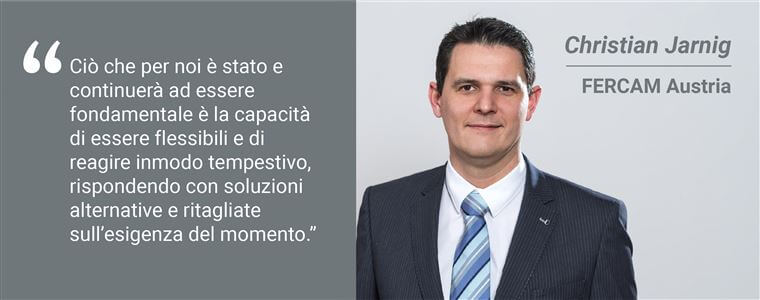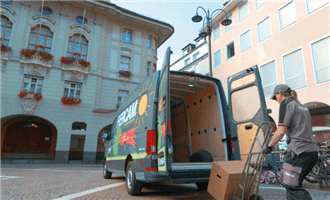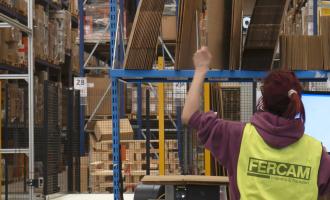
25 August 2020 - by: Eleonora Castagna
FERCAM Austria: how FERCAM’s international network reacted to the Covid-19 emergency
Christian Jarnig, Country Manager of FERCAM Austria, tells us about management during the quarantine period, the consequences for our business and the approach that has allowed the Austrian branches to remain competitive and provide solutions to their customers even during the emergency

What was the impact of the Coronavirus emergency on FERCAM Austria's business?
Regular market logics have been distorted by the emergency, but we have been fortunate to be able to rely on very skilled Transport Managers, who have been able to make decisions quickly and resolve contingent problems promptly.Initially, as a result of the closure of the borders and the slowdowns in production and commercial activities, we observed a significant drop in transport demand. And yet many other road hauliers were in difficulty in meeting the needs of their customers, who started looking for different solutions and new providers.
FERCAM Austria has devoted a lot of energy to building an extensive network of commercial contacts over the years and to carefully presenting the quality and guarantees intrinsic to our services. Therefore, many companies easily found an answer to their needs in us: in March we acquired 35 new customers, followed by 53 in April and 66 in May. I am happy that we have been able to seize these opportunities and I know that we have been able to manage them thanks to the responsiveness of the Branches and the reliability of our collaborators.
How did you organize the activities during the lockdown period?
From the beginning we put ourselves on maximum alert, taking all the precautions and rigorously applying the prescribed safety measures. Following government directives, we quickly made arrangements for remote working. Thanks to our Information Technology department, we had no technical complications: they supported us very well and have proven to be a crucial asset to deal with the emergency.I am very proud of our people and how they collaborated in the quarantine period. Despite working from home, the productivity level has not dropped at all, quite the contrary. I realized, for example seeing the time when emails were sent, that many went on working beyond the standard time, sometimes until the evening, with commendable commitment and dedication. At some point we also had to organize an urgent delivery, working on a Saturday, and we had no difficulty finding support from our collaborators.
We had young new hires who certainly did not find themselves starting their experience in FERCAM in the best way. However, they were looked after really well, they were able to learn everything they needed and managed to integrate despite the distance. The communication, mutual support and team spirit of our colleagues were exemplary.
What will be the next steps?
It is very difficult to think of detailed strategies for the future. We are still in full uncertainty and it is currently impossible to make likely predictions of what the long-term impacts of the pandemic will be, or the effects on the European and international markets. What has been and will continue to be fundamental for us is the ability to be flexible and to react in a timely manner, responding with alternative solutions tailored to the needs of the moment.Although the Group unit is fundamental, I find that the decision-making autonomy of the individual Branches is the winning key to streamline processes and speed up proposals. This is what has allowed us to remain competitive and face the emergency, even where others have been forced to surrender to difficulties.
Share


 Language
Language

























